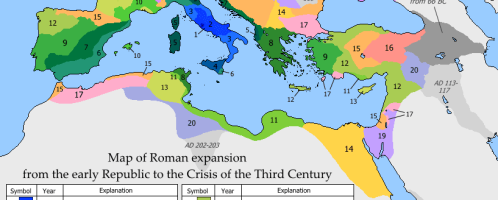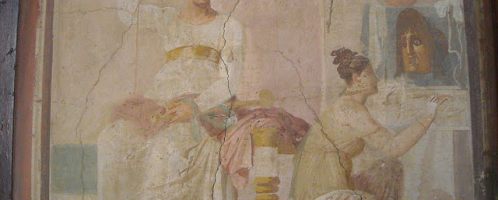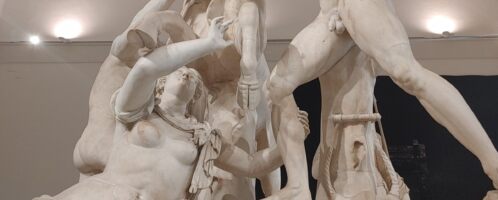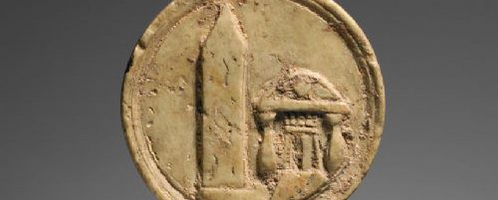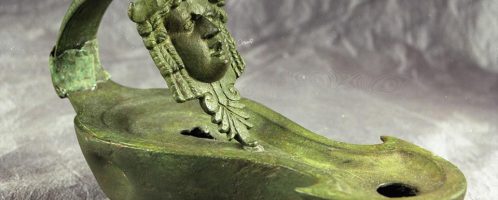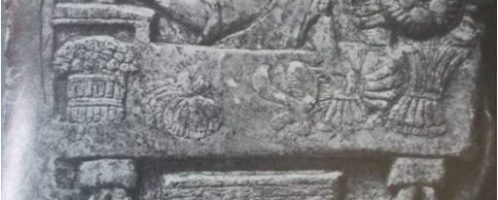Roman fashion
According to Roman fashion, feasts were organized in the so-called triclinium. In the middle of the room, the table was set up, and the sofas around it, leaving one side “unmarked” (something like a horseshoe was created).
Triclinia could have different sizes – in the picture we can see the smallest possible triclinium, consisting of three sofas. Most often, however, it consisted of nine couches arranged around the table.


